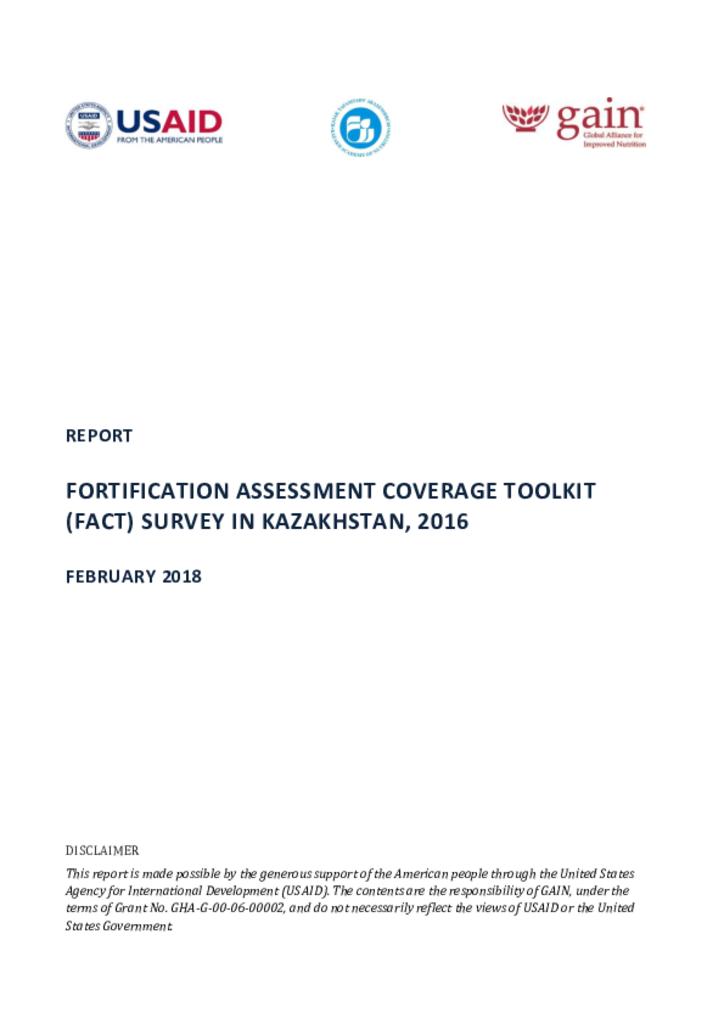Micronutrient deficiency is widespread in Kazakhstan among women and children. Large-scale food fortification is a cost-effective public health strategy to deliver micronutrients through commonly consumed foods. In Kazakhstan, mandatory fortification of salt with iodine was implemented in 2003 and refined wheat flour with iron, zinc, thiamin, riboflavin, niacin and folic acid in 2004.
In 2016, a cross-sectional survey using the Fortification Assessment Coverage Toolkit (FACT) was conducted among households with at least one child less than five years of age to update coverage figures of foods fortified according to the national standards and estimate the potential contribution of fortified foods to the micronutrient intake among children under five and women of reproductive age. Information on household demographics and food consumption patterns was collected along with samples of refined wheat flour and bread made from refined wheat. Food samples were analysed to determine the presence of added fortificant and, if positive, were analysed to determine total nutrient levels.
This report concludes that, in Kazakhstan, there is high coverage of fortifiable salt and wheat flour in all areas indicating high potential for fortification of salt and wheat flour to increase nutrient intakes across the entire population. For salt, this potential is being met as the population is receiving sufficient iodine to fulfill the nutrient requirements with all producers fortifying to some extent and a high contribution to iodine requirements in target populations. For wheat flour, the findings demonstrate that recent progress has been made, but improvements are needed for the program to reach its full potential. Compliance with the fortification standard for wheat flour remains a concern, as well as the use of non-fortified wheat flour in the production of industrially-manufactured bread.
